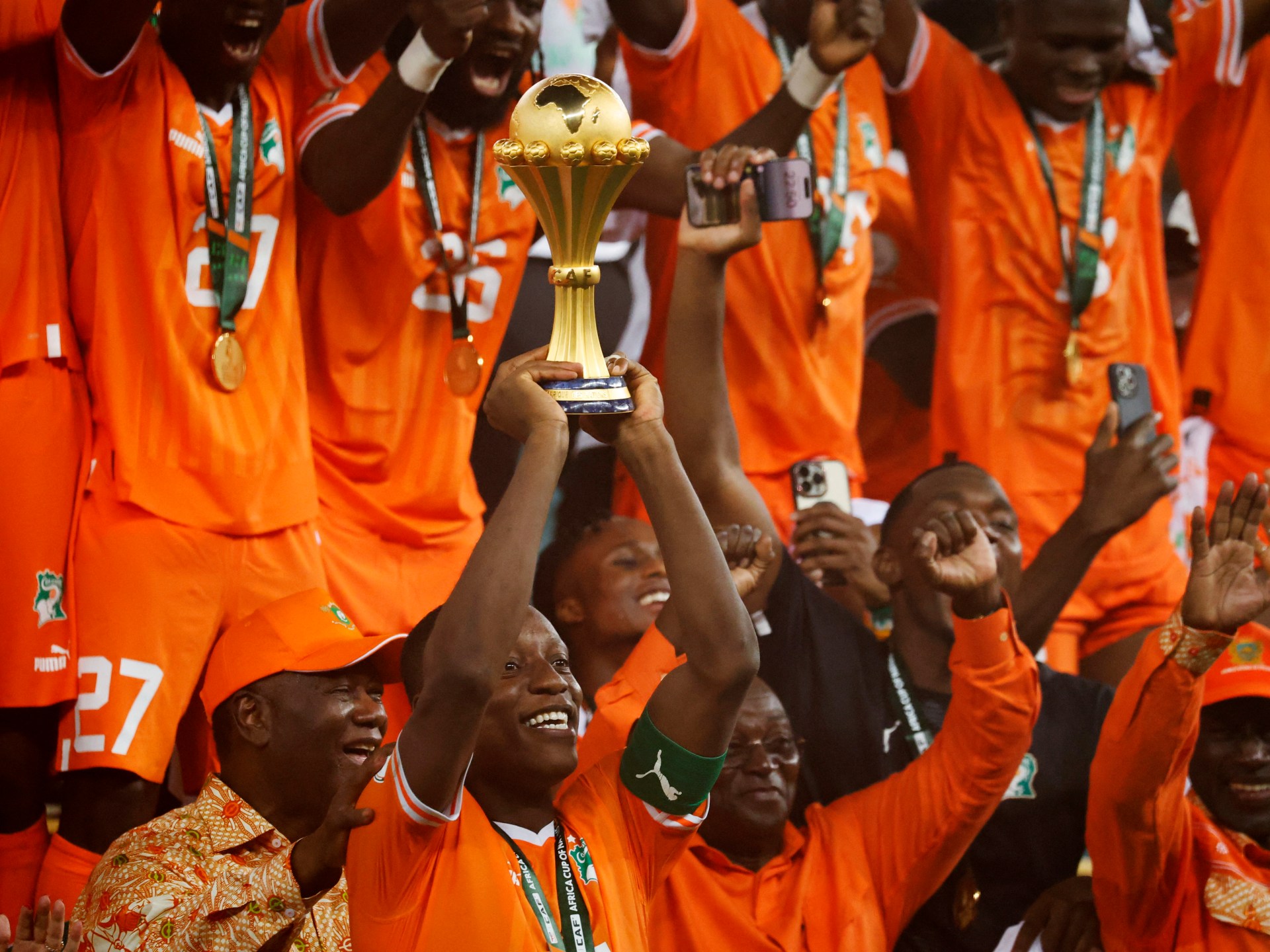The Elephants of Ivory Coast came from behind to complete a dramatic recovery and redemption on home soil at the 2023 Africa Cup of Nations as they claimed a third continental title by beating Nigeria 2-1 in Abidjan on Sunday.
The Super Eagles had taken a first-half lead, against the run of play, through their captain William Troost-Ekong, but goals from Franck Kessie and Sebastian Haller condemned Nigeria to their fifth defeat in eight appearances in AFCON finals.
For striker Haller, and for even the most ardent Nigeria fan, it was a fitting finale to a journey back to full health having been diagnosed with testicular cancer in July 2022.
Ivory Coast were on the brink of elimination in the group stage, for which Haller was injured, and lost their coach Jean-Louis Gasset as a result.
Their victory on Sunday, secured against a Nigerian side that were heavy favourites, also marked the first win by any hosts since Egypt claimed the crown in 2006.
Let the Elephants’ party begin
The triumph, all the sweeter for so many side stories, left the people of the West African nation, gripped by a five-year civil war until 2007, dancing long into the night. Heavy traffic jams with cars blaring horns and the sound of vuvuzelas, a horn instrument blown by football fans, took over a 3km radius of the Ebimpe area of Abidjan.
“We are the champions of Africa. Long live the Elephants,” jubilant Ivorian fan Siaka Kouassi told Al Jazeera.
“No team was better and we deserve to win against Nigeria. We are ready to party all night long,” a sweaty Maimouna Yaya added.
Sebastian Haller, the man who converted a whole nation’s dream into the net. 🐘⚽️🇨🇮#TotalEnergiesAFCON2023Final pic.twitter.com/uD7FadwqUG
— CAF (@CAF_Online) February 12, 2024
On the pitch, Nigeria had taken the lead through Troost-Ekong’s powerful first-half header before Kessie equalised with his aerial effort from a corner just past the hour-mark for the hosts.
Haller, who returned to playing in January 2023 after four rounds of chemotherapy and surgery in November 2022, steered Simon Adingra’s cross into the net to break Nigerian hearts with less than 10 minutes to play.
“It’s the power of the group and the mindset that put us through,” said Ivorian man of the match Adingra.
“We had some challenging moments but we rescued ourselves, although it wasn’t easy. The mental fortitude saw us restore our chances and do what we achieved today.
“Our people deserve this victory because they stood with us even when many thought we were dead.”
Pressing problems for Nigeria
The Super Eagles made surprise changes to the starting 11 with Samuel Chukwueze preferred over Moses Simon in attack, while the fit-again Zaidu Sanusi was picked ahead of Bright Osayi-Samuel on the flank.
It meant Nigeria, unbeaten with four clean sheets in six matches previously in the tournament, adopted the same defensive approach they used until their semifinal against South Africa. As a result, they failed to press their dominant opponents on the night.
“The Ivorians fought till the end. We should’ve pressed higher, but we didn’t,” Nigeria defender Kenneth Omeruo told Al Jazeera.
“We conceded a goal and that’s where things went wrong. Congratulations to the Ivorians.”
Disappointed, yet we make do with the Silver Medal#soarsupereagles #letsdoitagain pic.twitter.com/NNWKc5yfde
— 🇳🇬 Super Eagles (@NGSuperEagles) February 12, 2024
The tournament’s most valuable player and Nigeria captain Troost-Ekong said he would trade his best player award for the AFCON trophy. “No one gave us a chance before the start of the tournament but we exceeded expectations,” he said.
“It’s an unfortunate end to a great campaign and heartbreaking for us as a team. Ivory Coast wanted it more.”
Brentford midfielder Frank Onyeka says most of the Nigerian players are shattered and broken. “I feel sad. We fought till the end. It just wasn’t our day, and we were made to pay for it.
“We tried to play as the coach asked us to do by playing our game, but this was simply not a solid Super Eagles performance.”
Nigeria coach Jose Peseiro, whose future is now in the air, as his two-year contract expired at the end of the tournament, admitted his side were second best.
“Our team had a fantastic tournament but today Ivory Coast was better,” the 63-year-old said. “Our team didn’t show our level. That’s the truth. It was not the same job as we did in the previous rounds.”
𝑶𝒏𝒆 𝒌𝒊𝒔𝒔 𝒊𝒔 𝒂𝒍𝒍 𝒊𝒕 𝒕𝒂𝒌𝒆𝒔 😘🏆#TotalEnergiesAFCON2023Final pic.twitter.com/1dU9V5Zk04
— CAF (@CAF_Online) February 11, 2024
The Elephants stamp past the Super Eagles
For Peseiro’s opposite number, Emerse Fae, the future is clouded for a very different reason.
The 40-year-old was appointed as interim manager to replace Gasset following two defeats in the group stage.
It was not so much a comeback for Fae, as in the sense of his side’s redemption and the recovery of their match-winning hero Haller, but rather the completion of an evolution following the cards life dealt him.
The former Ivorian international, who played in the Premier League with Reading, focused on coaching at the age of 28 when he was forced to retire from playing due to Phlebitis, the inflammation of veins close to the skin.
Fae said it was too soon to speak about his future and instead insisted he just wanted to celebrate a significant achievement in the history of Ivorian football.
“Everyone suffered to achieve this, now we can celebrate being African champions,” he said.
“This victory is for our people who stood by us and never stopped supporting us.”
For Fae, Haller and the Ivorian team as a whole at the tournament, this AFCON was the story of mighty Elephants who never stopped marching through terrain that seemed ever inclining in front of them.
Check out our Latest News and Follow us at Facebook
Original Source

